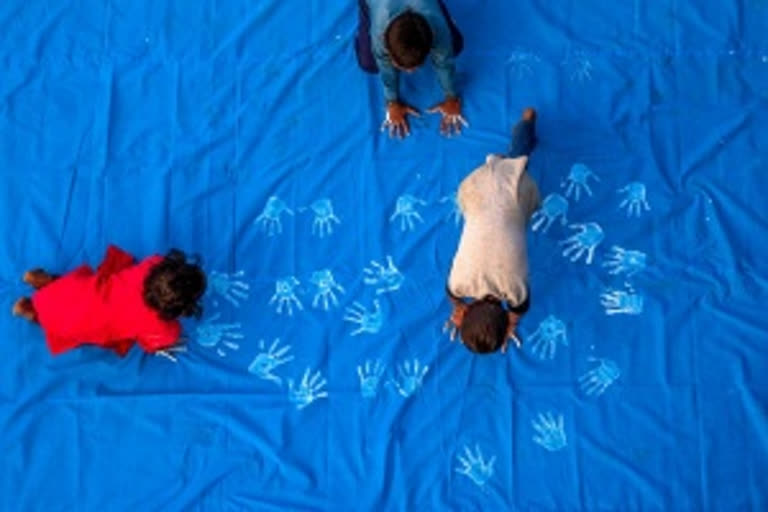New Delhi: Fighting for the cause of Child Rights, the United Nations Children's Fund (UNICEF) on Friday lit up the Rashtrapati Bhawan, Prime Minister's Office, Parliament House and Qutub Minar here in blue commemorating the Child Rights Day.
The day was also dedicated to the impact of COVID-19 and climate change on the lives of the children.
Officials in UNICEF told ETV Bharat that World Children's Day (WCD) is a global day of action for children, by marking the adoption of the convention on the Rights of the Child on November 20, 1989.
"COVID-19 is a child rights crisis. In the backdrop of the global pandemic, UNICEF brings the spotlight on the impact of the COVID-19 crisis on the Rights of children. The costs of the pandemic for children are immediate and, if unaddressed, may persist throughout their lives," said the officials.
Interestingly, this year's activities occurred in the virtual and digital spaces.
"Along with grown-ups, children also wear masks and maintained physical distancing," officials said.
It may be mentioned here that, UNICEF in partnership with Parliamentarians Group of Children (PGC) has organised a climate parliament with Children on Friday.
As many as 30 MPs were present in the programme where they signed a letter of commitment to support in integrating children's rights and voices to climate action and adaption plans.
A virtual concert, "Reimagine, be kind and the SDGs with songs about the environment for children on world children's day was organised by UNICEF along with Grammy Award-winning composer, music producer and environmentalists Ricky Kejand and others.
Meanwhile, UNICEF has conducted a survey named Wave-2, a community-based monitoring mechanism on the the socio-economic impact of coronavirus pandemic on the marginalised population during the from August to September.
The Wave-2 assessment was conducted in 12 districts speed over seven states of Uttar Pradesh, Rajasthan, Maharastra, Gujarat, Tamil Nadu, Telangana and Andhra Pradesh.
Results show that while the economic situation of the families under the study remains challenging, selected government services have improved compared with the results of Wave-1in June-July.
Also Read: UNICEF seeks more aid for at-risk Mideast kids amid pandemic



